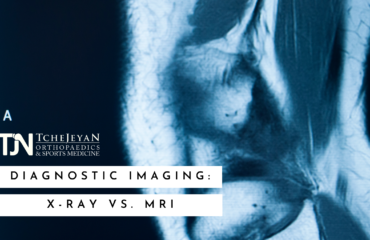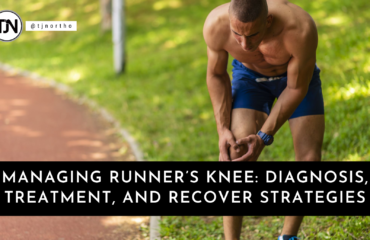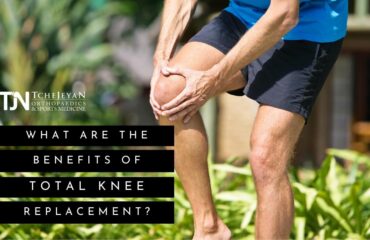Knee pain is quite common, particularly as we age. This is especially the case with people who have engaged in activities that put extra stress on the knees, such as construction work, athletics, warehouse jobs, and delivery jobs. But even people who have not regularly engaged in strenuous activities often develop knee pain later in life. The fact is, our knees take a beating through life, supporting our weight, helping us walk, run, jump, hike, climb stairs, and a myriad other activities.
The knee is a fairly complex joint, involving three main bones–the femur (thigh bone), the tibia (shin bone), and the patella (knee cap). And connecting all these bones to each other and to the muscles of our legs are ligaments and tendons. Finally, the bones are all cushioned from scraping against one another by cartilage that covers the surfaces of the bones. This allows the bones to slide against one another, rather than grind. There are a lot of moving parts.
With any complex mechanism, parts can wear out over time, and the knee is no exception. And while our bodies can heal minor injuries, the body’s ability to heal itself degrades over time. This degradation, in combination with the wear and tear our knee joints experience over a lifetime, can damage a knee to the point that a total knee replacement is necessary.
When is a Total Knee Replacement Warranted?
Knee pain can come from a lot of sources, and it may not be a single cause such as a traumatic injury event. Knee pain can be the result of the knee simply no longer working as it was designed to do. The most common condition that calls for total knee replacement is osteoarthritis. Osteoarthritis is not a specific disease; rather, it is the condition of progressive degeneration that comes with age and use of the joints, although it can sometimes develop or accelerate as a result of other ailments.
What generally happens is that the cartilage that cushions the surfaces of the knee bones wears down. At a certain point, the cartilage wears down to the point that the bone no longer has an adequate covering of cartilage, and movement of the joint causes bone to grind on bone directly.
When this happens, it can be extremely painful to move, and actually difficult to move–the joint loses range of motion. While conservative treatments like cortisone injections or anti-inflammatory medications can offer temporary relief, at a certain point, they are no longer effective. Total knee replacement may be the only remedy.
What Happens With a Total Knee Replacement?
In knee replacement surgery, the end of your femur is replaced with a specialized metal shell. Meanwhile, your tibia is capped with a cup and stem that fit together. If needed, the kneecap or cruciate ligament will be replaced, as well. The procedure takes about three hours.
Total knee replacement, then, is what it says: replacing the knee joint with an artificial joint. The surgery is a common procedure, undertaken over half a million times every year in the United States. While every surgical procedure carries risk such as getting an infection or blood clots, these adverse effects occur in less than 2% of all cases, and 98% of knee replacement patients can expect a positive outcome.
By giving you a completely new joint, you can regain your mobility and eliminate pain. What is more, the strengthened knee joint can eliminate or lessen the occurrence of injuries that often happen to people with bad knees. By strengthening and stabilizing your knee, you’re less likely to lose your balance and suffer from falls.
A repaired knee can also improve your overall health in collateral ways. Because it eliminates knee pain and stiffness, patients can resume regular physical activity that would not be possible with a bad knee. Physical activity is an important part of being healthy. It helps patients to maintain a low body weight, which is important for overall health. In contrast, when pain prevents a person from getting sufficient exercise, it often leads to other health problems. Regular exercise can help prevent osteoporosis, cardiovascular disease, diabetes, and more.
While it can take a while for full recovery from knee replacement surgery, once the trauma from the surgery is overcome, a patient can expect almost immediate relief from pain, and, with physical therapy, can expect to enjoy regular physical activities again in a relatively short amount of time.
If you are experiencing debilitating knee pain, a consultation with Dr. Tchejeyan at Tchejeyan Orthopaedics and Sports Medicine can help determine whether you are a good candidate for total knee replacement surgery, or whether you may benefit from a less aggressive procedure. Contact our team at Tchejeyan Orthopaedics and Sports Medicine in Thousand Oaks today to set up your appointment.




